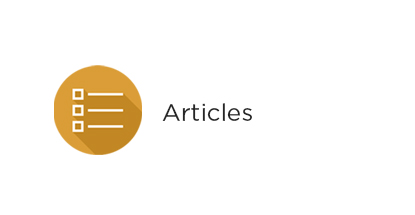
From the CPABC Regulatory Affairs Team
Why “licensing” and “registration”?
In the legacy worlds, either individual practitioners were registered or firms were licensed. In the CPABC world, however, public practitioners must be regulated at both the individual and firm levels (additionally, a separate permit is needed if a professional accounting corporation is used). In short, under CPABC, individual practitioners are licensed, and firms are registered.
You might be wondering why we need both. Wouldn’t it be more efficient to regulate one or the other?
By licensing individuals, CPABC, as a regulator, can confirm that every individual in public practice who signs off on an engagement has the appropriate education and experience to undertake this work. But the firm is the public-facing aspect of a practice, responsible for professional liability insurance and for the quality of work performed by every person on staff—not just those who are licensed. By regulating firms as well as individuals, CPABC is able to oversee quality-control processes and ensure that all services offered to the public meet professional standards.
Licence categories for individual practitioners
As defined in the CPABC bylaws and summarized below, “public practice” consists of two components:
- “Public accounting,” which means providing or offering to provide audit, review, or compilation services; and
- “Other regulated services,” which capture services such as tax advice, tax or statutory filings, forensic accounting, and financial investigation.
These definitions lead into the various categories of individual licensing:
- Audit,
- Review,
- Compilation,
- Other regulated services – Reviewable (T1 and T2 services), and
- Other regulated services – Non-reviewable.
A member with a licence to practice public accounting (whether audit, review, or compilation) is able to deliver any of the services that provide less assurance. For example, a practitioner with an audit licence can also provide review and compilation services. Moreover, under current regulations, audit, review, and compilation licences also allow the practitioner to undertake tax and other regulated work—the caveat, of course, being that a member can only undertake services for which they have the appropriate level of professional competence.
Note that firms do not have a category. A firm can offer any services that align with the categories of the individuals licensed to sign off on the relevant engagements.
Forensic accounting now requires licensing
Any member who conducts a forensic accounting practice must now be licensed, as forensic accounting falls under the category of “other regulated services – non-reviewable.” Members who are not already licensed need to contact CPABC by email at publicpractice@bccpa.ca. Once professional liability insurance is in place, the licence will be confirmed.
If any readers know of members practising in this area who may not be aware of the requirement to become licensed, please do relay this information to them, as licensing must be in place by September 1, 2016.
Services allowed under each category
| Categories of licence |
Authorized services per bylaw regulations | Summary of permitted services |
|---|---|---|
| Audit Licence | A member holding an audit licence is authorized to provide any public accounting services and any other regulated services, subject to any applicable standards, limits, or conditions established by the board for providing such services. |
|
| Review Licence |
A member holding a review licence is authorized to provide*:
*Subject to any applicable standards, limits, or conditions established by the board for providing such services. |
|
| Compilation Licence |
A member holding a compilation licence is authorized to provide*:
*Subject to any applicable standards, limits, or conditions established by the board for providing such services. |
|
Category: Other Regulated Services – Reviewable T1 or T2 services
| Authorized services per bylaw regulations | Summary of permitted services |
|---|---|
| A member holding an other regulated services licence is authorized to provide other regulated services, subject to any applicable standards, limits, or conditions established by the board for providing such services. | |
| Other Regulated Services – Reviewable T1 or T2 services |
|
| Other Regulated Services – Non-Reviewable Other services |
|
Changing categories
Practitioners seeking to change their licence category can request a change by completing Form 3B: Request to Amend Category of Public Practice Licence, which can be found on the CPABC website at www.bccpa.ca/member-practice-regulation/public-practice/forms/.
It is important to note that practitioners will not lose their right to change back to a category in which they were previously authorized to practice unless it has been over five years since those services were provided and competence in that area has not been maintained (maintaining competence would include undertaking appropriate professional development).
Rationale for different categories of public practice licence
The implementation of licence categories was one of the recommendations made by a national working group tasked with giving in-depth consideration to best practices in the regulation of public accounting.
The new model reflects the reality that our members have different types of business models, with many working outside the assurance field. These categories also reflect the marketplace, as not all clients need assurance services—many are looking for professional accountants to provide other services. We need to ensure that we are able to license members who have experience appropriate for non-assurance practices.
The licence categories also link with the various practical experience options for CPA students. Those students wishing to pursue an assurance licence need to get their practical experience in a pre-approved program with an office that offers assurance services. Students who intend to practice in a compilation area can obtain their experience in a public practice firm—either through a pre-approved program or through the experience verification route.
Ultimately, these categories of public practice licensing reflect the diversity of CPA membership and the services CPAs offer to the public.
Rate this Entry
Current rating: 10 yes votes, 6 no votes

